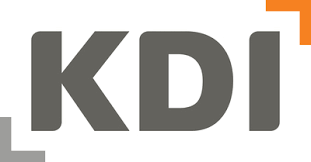Location
The Korea Development Institute is an autonomous policy-oriented research organization founded in 1971. KDI was established by the Korean government as an economic think tank to provide a rigorous academic perspective on the various economic policy issues that had arisen during Korea’s rapid growth and development in the 1960s. Since then, the scope of KDI’s activities has grown, and it is now called upon to provide expert analysis and advice on all aspects of long- and short-term government policies in areas ranging from domestic economic policy to international trade and investment.
Members:
Resources
Displaying 1 - 5 of 6The expropriation and compensation system in Korea
For the last 60 years, the Korean economy has achieved an astounding development that is called “the Miracle of the Han River.” Korea was one of the world’s poorest countries at the time of the national liberation in 1945 and it went through a three-year long Korean War from 1950. However, it grew into one of the world’s leading trading powers. Its per capita income, which was merely 255 USD in 1970, reached 22,000 USD as of 2012.
The establishment of Korea land information system (KLIS)
The Korea Land Information System (KLIS) aims to provide information necessary for land policy establishment promptly and accurately. This system manages accurate information on land use zoning designated by land use regulations and provides it to government agencies, local governments, and people. KLIS manages and provides specifically the land information database to prevent duplication of investment among agencies and to effectively manage the land by securing the compatibility of data sets.
Korean legislation on rural development and land reform
The main objectives of this research report are to outline the various policies that have been implemented through statutes in the past, and to introduce the legislation regarding rural development and land reform. This report will document each economic turning point and each stage of development since Korea was liberated from Japanese colonial rule in 1945, to the present. This is all included in the “The Necessities and Objectives of Research” to provide substantial rationale for developing countries by linking policies with relevant Laws.
Farmland utilization and improvements for agricultural production infrastructure: farmland consolidation
Farmland consolidation is the act of consolidating a series of fragmented and irregular farmland plots to enlarge plot their size and support sufficient irrigation. Farmland consolidation also combines and groups the proprietor’s farmland into one area by administrative give-and-take as well as division-and-junction of their land. Moreover, it also includes the rearrangement of farmland, which is small or lacks sufficient infrastructure due to farmland consolidation or earthwork waterways projects that were done in the past.
Land reform in Korea
Land reform, which became widespread all over the world for a while after World War II, lost steam rapidly after the 1970s. Then, when the 21st century began, land reform-forgotten for a generation-has received attention again. Above all, this is because it has been a widely recognized perception that land reform should be required in order to solve poverty. This report examines how land reform has had an effect on the general economy and society of a country, based on Korea’s experience in land reform.


